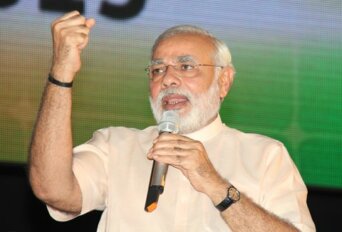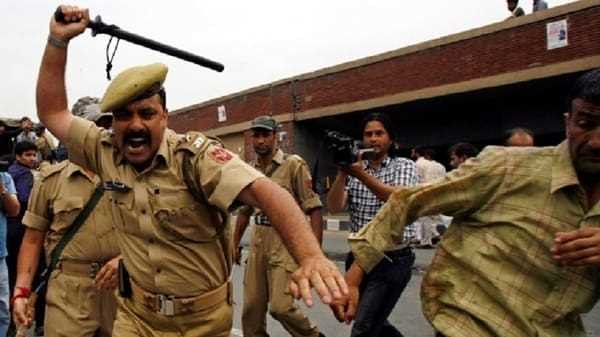- About
- Topics
- Picks
- Audio
- Story
- In-Depth
- Opinion
- News
- Donate
- Signup for our newsletterOur Editors' Best Picks.Send
Read, Debate: Engage.
| topic: | Political violence |
|---|---|
| located: | India |
| editor: | Tish Sanghera |
Journalists, members of parliament, the leader of the opposition and an election commissioner - these are just some of those revealed to have been targeted by Prime Minister Narendra Modi's government in a widespread hacking of WhatsApp accounts.
The investigation into State-sponsored hacking using Pegasus, a spyware sold by Isreali cyberarms firm NSO to select governments around the world, has made international headlines.
Dubbed ‘The Pegasus Project’, its revelations have shocked global audiences due to the extent of the surveillance and the high-powered targets involved.
France's President Emmanuel Macron has found himself and much of his cabinet on a list of compromised phone numbers, and has immediately launched an investigation.
Pegasus-gate has also revealed that the phone numbers of Rahul Gandhi, India’s key opposition leader, and some of his close aides had been potentially targeted ahead of the 2019 general elections.
In the lead-up to the regional elections in 2021, an opposition politician and political strategist were also in the firing line. Both cases raise alarming questions around the potential undermining of India's democratic process.
A statement by Rahul Gandhi read: "Targeted surveillance […] whether in regard to me, other leaders of the opposition or indeed any law-abiding citizen of India is illegal and deplorable." “[I]t is an attack on the democratic foundations of our country. It must be thoroughly investigated and those responsible be identified and punished,” he added.
Reactions from the Modi government to the revelations have been predictably hostile. Instead of receiving this information and promising (even if skeptically) a full investigation, Home Minister Amit Shah has turned to one of his favorite retorts as an explanation: that the project is an international conspiracy to “derail India’s development trajectory”.
Many of his party colleagues have also been spouting the same line, saying that the investigation has been timed to coincide with Parliament re-starting again.
In all, the picture is bleak. Not since a period in the mid-70s known as ‘The Emergency’ has civil liberties been under such attack. Following this investigation, India joins a club of authoritarian regimes like Saudi Arabia, Azerbaijan and Hungary, all of whom have bought and deployed Pegasus against activists, journalists and citizens voicing criticisms against their governments.
Although the Indian government is trying its best to counter the revelations with conspiracy claims and wild distractions, the international scope of the investigation means pressure is building on NSO, the makers of Pegasus.
Infamous whistleblower Edward Snowden, for example, tweeted that NSO “should bear direct, criminal liability for the deaths and detentions of those targeted with digital infection vectors it sells.”
For now, it seems that a global investigation may be the best, perhaps the only, chance of securing adequate answers for those Indians affected.
Image: Global Panorama.

